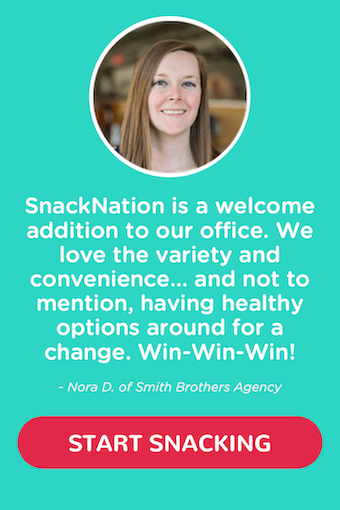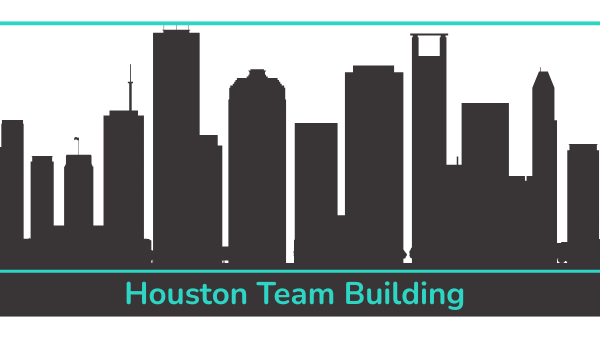
Few tasks have as many moving parts as corporate event planning.
From locking down dates to coordinating travel, your action items may seem to multiply on a daily basis. Don’t feel overwhelmed—you’ve got this, and we’ve got your back!
Take the guesswork, panic, and chaos out of event planning and nail all the details with this indispensable corporate event planning checklist. This checklist helps you rest assured that you’re doing all you need to do, and it frees up some of your headspace for focusing on all the fun details that will make your event unforgettable.
Download this corporate event planning checklist >
What to do 24-18 months before your event:
1. Research Potential Cities

Factors to consider:
- Nearby airports
- Convenient public transportation
- Number of quality venues available (You’ll want to have plenty of available venues to choose from later on.)
- Weather
- Distance from most target attendees
- Conflicts with city-wide events (If an annual marathon closes major city roads during your event time frame, you might want to choose a different city.)
- Walkability
- Safety
- Traffic
- Free attractions
- Flight availability and cost (Use Google Flights to do a quick price scan for tickets to the city during your time frame. Are prices already skyrocketing? If so, consider looking elsewhere to increase attendance.)
Tips & Tricks:
- Before you get too deep into research, save time by narrowing your search down to your top fives cities.
- Explore the personalities of the cities. Practical details make your event happen, but you should also investigate notable features, the elements that give cities personality. Use handy tools like Spotted by Locals, Trover, Off the Grid, and Time Out to have some fun.
2. Choose One City
Decision criteria:
- Since you’ve already done a ton of research, you simply need to select about 5 research factors that are most important to your event. While every event may be different, some universally important factors include:
- City personality (Does it fit with your company culture?)
- Available venues (Have you found any promising choices in the city? Even the best city can’t make up for a sub-par venue.)
- Available transportation
- Travel distance
- Flight Cost
Tips & Tricks:
- Survey a few key stakeholders to get their thoughts. Your associates might have insights you never even considered. For example, someone might tell you the city is a college town where it’s impossible to find an available bar or restaurant on any night of the week.
3. Research Venues in Your City

Factors to consider:
- Layouts and sizes of the rooms (Do the spaces comfortably hold all your expected attendees?)
- Hotels within walking distance—if the venue is not a hotel
- Look and feel (Browse pictures of the venue. Use their official websites, but also search on Google Images to ensure a true representation.)
- Restaurants and coffee shops within walking distance
- Customer reviews (Check on Yelp if nothing is posted on the official website.)
- Parking
- Services offered in-house, including catering, audiovisual, waitstaff, cleaning services, etc.
- Outside vendor policies (This is important if the venue offers few services in-house.)
- Insurance
- Accessibility
Tips & Tricks:
- Check to see if the venues have event portfolios. What kind of events are they showcasing? It’s best to choose a venue with expertise in the kind of event you’re planning; the staff will know the drill, anticipate your needs, and help you troubleshoot when things go wrong.
- Do the venues do weddings? If so, their rates might be higher.
- Can you picture the event you envision taking place in the venue?
4. Choose Your Top 3-4 Venues
Decision criteria:
- Select about 5 research factors that are most important to your event. While every event may be different, some universally important factors include:
- Look and feel—the venue personality
- Layouts and sizes of the available rooms
- Services offered in-house
- Outside vendor policies
- Hotels within walking distance
Tips & Tricks:
- Use Google Maps to do a street view around your venue choices to get a feel not just for your venues, but also for the surrounding areas.
5. Contact Venues for Proposals
Tips & Tricks:
- Keep a spreadsheet of who you contacted, when you reached out, and how you reached out. For example, did you fill out an online form, send an email, or make a phone call? This spreadsheet will help you keep your outreach flow organized and your details straight, and it will be super helpful if you need to follow up with anyone.
6. Compare Proposals to Budget
Tips & Tricks:
- As you review venue proposals, keep an eye out for costs you might be able to trim. For example, a venue might include fees for their in-house catering services, but if their policies allow for outside vendors, you might be able to save money there.
- Negotiate! If a venue you love sends a proposal outside of your budget, you don’t have to mark them off your list. Simply give your contact a call and explain your situation. Be ready to start the negotiation if the venue doesn’t take the lead; study the line items of the proposal and pick out the costs you suspect could be lowered.
7. Plan Site Visits
Tips & Tricks:
- Request appointments when events are in progress. This will give you the best preview of how your event could look.
- If you have the time, try to book visits on different days, or at least leave several hours in between visits. You don’t want to pass on a good venue just because you were tired or hungry during the visit!
8. Visit and Evaluate Venues
What to look for:
- How do you feel when you first walk into the venue? First impressions matter, period. Even the most meticulous planning can’t compensate for a venue that doesn’t have the right personality.
- Remember how you tried to book visits when events were in progress? Now’s your chance to pop in and see how things are going. Make sure this is okay with the venue staff before you investigate, and be as unobtrusive to the in-progress event as possible.
- Check out the staff. Are they smiling and courteous? (Even a few rude encounters with staff could reflect poorly on your event.)
- Is the venue clean and well maintained? Be sure to check the restrooms, where the most offensive messes can hide.
What to do 18-12 months before your event:
1. Sign a Contract with Your Chosen Venue

Tips & Tricks:
- Take several days to review the contract with a fine-toothed comb.
- Ask questions and record the answers you receive. It’s critical that you understand all aspects of the contract and remember all the key details.
- Make plenty of your own copies.
- Verify the prices include all taxes and fees. If prices do not include these extras, avoid surprises by asking your venue contact to add them or send an estimate.
- Review the cancellation policy to be sure you know what’s at stake if you have to cancel for any reason. Is the deposit (or a portion of it) refundable?
- Make sure the exact rooms/spaces you want are listed. You don’t want just any space; you want the space you toured and loved.
- Check the time frames allotted for the event. What happens if you go over your time?
- Make sure you are protected if the venue can’t deliver on any part of the contract. For example, if a hurricane causes a leaky roof in the room you wanted and you have to move, can you get some of your money back?
- Negotiate! Like proposals, contracts are negotiable. It’s perfectly acceptable to request changes on any lines you’re uncomfortable with.
2. Run Through Meeting Flow and Make Your Event-Specific To-Do List
Tips & Tricks:
- Run through your event flow minute by minute. Write it out, make a storyboard, coerce your coworkers into acting it out—do anything that helps you visualize your event and wrap your head around every to-do item, big and small. For example, if you always envisioned a slideshow playing behind your CEO as she makes her welcome speech, then you need to make said slideshow and secure all the equipment needed to project it.
3. Research Entertainment Options
Factors to consider:
- Universal likeability (Will everyone in your office, from the interns to the veterans, be able to appreciate the option?)
- Creativity (Have you seen this at other events you’ve attended? Try to deliver something memorable to make your event stand out. The right idea will leave everyone talking about it long after the corporate event is over.)
- Cost (Even before you request quotes, you should be able to determine a rough estimate of the entertainment cost. Don’t get your heart set on a 15-piece swing band if you have the budget for a solo violinist.)
Tips & Tricks:
- Seek referrals. Ask your associates at other companies for recommendations. What kind of entertainment did they use for recent events? How was it received?
- Go off the grid. Don’t limit your search to online aggregators. Reach out to local schools, nonprofits, and businesses. Maybe a local coffee shop would be willing to move their weekly poetry slam to your event. Or maybe a local university choir performs for free.
What to do 12-9 months before your event:
1. Send Calendar Invites to Key Stakeholders and Presenters

Tips & Tricks:
- A calendar invite is great, but you should also follow up with an email or phone call to verify everyone playing a key role in your event has all the details they need.
2. Approach Entertainment Options
Tips & Tricks:
- Open up that spreadsheet you made when contacting vendors. Create a new tab for “Entertainment” and…you know the drill.
3. Research Team-Building Activities
Factors to consider:
- Company size (If your company is gigantic, don’t select an activity that requires a lot of equipment or supplies.)
- Groan factor (Don’t just pick an activity because it sounds easy to execute. Be sure people will actually like it.)
- Activity goals (The goal of a team-building activity isn’t just to have fun; the activity should also contribute to team building, at least in a qualitative way.)
- Fitness level (Only select activities with lots of motion if everyone in your company would be cool with it.)
- Complexity (Steer away from activities that involve lots of steps that could be difficult to explain.)
Tips & Tricks:
- Who will facilitate the activity during the event? Reach out to a few of your outgoing, energetic associates to see if they would like to be the “Master of Team-Building Ceremonies.”
4. Sketch a Meeting Layout to Establish Rental and Equipment Needs

Factors to consider:
- Revisit the event flow you created earlier. After each item, pause and ask yourself, “What equipment do we need to do that?”
- Mark up a sketch of your meeting space with exactly what you need and where and when you need it.
Tips & Tricks:
- Ask your venue to provide a downloadable floor plan for your space.
- Share your equipment needs with your venue and find out what items they have. You can also request their expertise in creating the equipment list. Have you forgotten anything important?
5. Partner with an Audiovisual Company to Determine A/V Needs
Tips & Tricks:
- You’ll benefit most from working with an A/V company that knows your space, so ask your venue for a list of recommended A/V vendors and save yourself lots of research time.
What to do 6 months before your event:
1. Send Save-The-Dates
Tips & Tricks:
- Sending the save-the-dates 6 months in advance will build anticipation throughout the office.
- Be sure to add the memo on all the office bulletin boards, this is a surefire way to remind everyone in the office to add the date to their calendar.
2. Choose Team-Building Activities and Sign Agreements If Applicable
Decision criteria:
- Cost (With your venue locked down, cost might help you decide which team-building activity to go with.)
- Coworker votes (Make your decision easier by getting 20 or more coworkers to cast votes for their favorite team-building activities.)
3. Research Dinner Locations

Factors to consider:
- Special diets (Research appropriate restaurants if your company is 70% vegan.)
- Reservations (Don’t risk frustration by choosing restaurants that do not accept reservations.)
- Spaces for large groups (Does the restaurant book private rooms or accept reservations for extra-large parties?)
- Menu choices
- Distance from event venue
Tips & Tricks:
- Local recommendations are golden. If you don’t know anyone in the city of your event, reach out to your venue staff to get their opinions.
- Ensure an authentic local dining experience by carefully checking the restaurant website to make sure it’s not a chain.
4. Research Awards and Get Samples
What to do 5 months before your event:
1. Choose Spouse or Children’s Activities If Applicable
Decision criteria:
- The number of children and spouses.
- Ages of children and spouses.
Tips & Tricks:
- Ask associates who are bringing their children and spouses for some activities their families enjoy.
2. Choose name tag layout
Tips & Tricks:
- Readability is the most important part of a name tag. Make sure designs and colors don’t obscure attendees’ names.
3. Order key cards
What to do 4 months before your event:
1. Send a Registration Link
Tips & Tricks:
- Use Google Analytics to add a backend tracking tag to your link so you can see how many people click it, especially how many people click and don’t complete their registrations. This might indicate there is something flawed or confusing about your registration page.
What to do 3 months before your event:
1. Visit the Location for a Final Walk-Through
2. Send the Last Call for Outstanding Registrations
3. Collect Size Information for Gifts
4. Find Company for Transport to and from the Airport
Decision criteria:
- Capacity (How many rides can they accommodate?)
- Flexibility (Do they only drive during business hours, or can they make off-hours trips?)
5. Send Name Tags to the Printer
6. Finalize Head Counts for Dinner(s)
7. Finalize Menus for All Meals
Decision criteria:
- Cost
- Diverse choices
- Appropriate for special diets
- Appropriate for allergies
- Delicious (Insist on tasting all the options.)
8. Get List of Award Winners and Order Final Awards
9. Draft Agenda
What to include:
- Venue information and address
- Dates, times, and locations of all events and breaks
- Dates, times, and locations of all meals
- Names and emails of speakers and presenters
- You contact information—for taking questions or concerns
- Important notes (If attendees need to bring anything or dress in a certain way, be sure to note that on the agenda.)
10. Draft Welcome Letter
What to include:
- Why your company has the event
- What you hope to accomplish through the event
- How the event connects to your company mission
- Dates for the next event, if applicable
What to do 2 months before your event:
1. Choose employee gifts and place orders.

What to do 1 month before your event:
1. Rent a Vehicle to Move Items to and from the Event Location
2. Send Rooming List to Hotel
3. Finalize Agenda and Send to Printer
Agenda checklist:
- Venue information and address
- Dates, times, and locations of all events and breaks
- Dates, times, and locations of all meals
- Names and emails of speakers and presenters
- Your contact information
- Important notes
4. Finalize Welcome Letter and Send to Printer
Welcome letter checklist:
- Is it clear why your company hosts the event?
- Are the event goals clear?
- Do you understand how the event contributes to your company mission?
- Have you included dates for future events?
What to do the month of your event:
1. Move Essential Items to One Room and Take Inventory
2. Check for Employee Birthdays Overlapping with the Event
3. Host a Team Meeting
What to do:
- Go over the event agenda and take questions.
- Ask for volunteers for the different roles you need to fill. (Prepare a list of duties, including time and location expectations, beforehand so the roles are clear, and volunteers understand what they’re signing up for.)
What to do 1 week before your event:

1. Host a Team Meeting
What to do:
- Go over job assignments in detail and give volunteers a chance to ask questions.
2. Get Remote Access for Laptop
What to do the day you leave for your event:
- Change door unlock timers.
- Update voicemail and email auto-reply message.
- Update websites you manage.
- Clean office refrigerator.
What to do the week of your event:

1. Host a Team Meeting
What to do:
- Take any final questions.
- Walk through event flow one last time.
- Get excited!
2. Host a Pre-Conference Rehearsal with Hotel Staff, Employees, and Presenters Who Are Available
What to do:
- Make sure everyone is clear on the timing of presentations, meals, etc.
- Make sure everyone knows where they need to be and when.
- Check for awkwardness information or flow.
Download this corporate event planning checklist >








Thanks for including Team Building as part of your event planning checklist. Especially since you have it being planned so far out….It’s much appreciated! People should really consider what their team building objectives are before determining their activities. Having a conversation with your team building provider about your objectives can really help to narrow down the activity or activities you select for your group.
Very helpful. Will definitely use this checklist.
This website is really helpfull
Thank you ! i appreciate and value a lot this information. keep up the work.
Other content online cannot measure up to the work you have put out here. Your insight on this subject has convinced me of many of the points you have expressed. This is great unique writing.
Great in depth checklist, I would add that when you check locations of venues or hotels, you should look for nice neighbourhoods.
Thanks for sharing such a great checklist to follow for planning a wonderful event. These points can help any event start-up or a well-know event agency to host a great event that can create an everlasting experience for the attendees.
Great stuff.
Thanks!
We appreciate you taking the time to read and happy you found our content to be helpful! Workplace experience is on the rise 😉
Great work…very comprehensive article! Definitely bookmarking this one.
wow very well explained the each and every aspect.
I like your suggestion to check out things like the staff and restrooms when evaluating potential venues for the event. Additionally, those considering outdoor venues can ask about restrooms and if they’ll need to work with a rental company to provide toilets for their guest. Thanks for sharing this info that can be used as a resource by anyone planning outdoor events in the future!
Fab Article!!Very Informative!!
Perfect checklist for corporate event management.